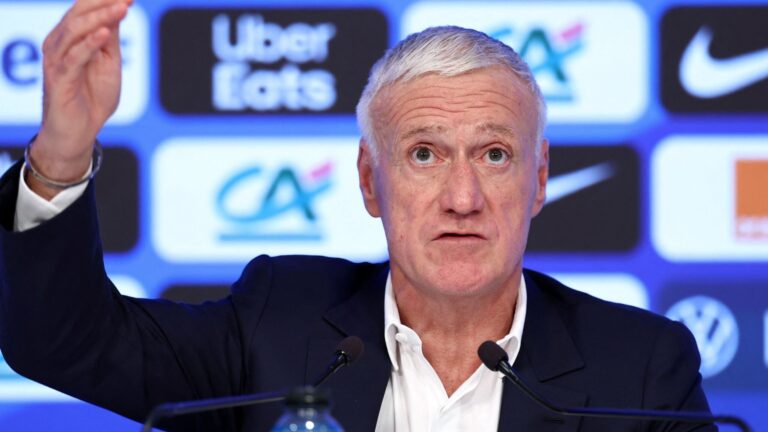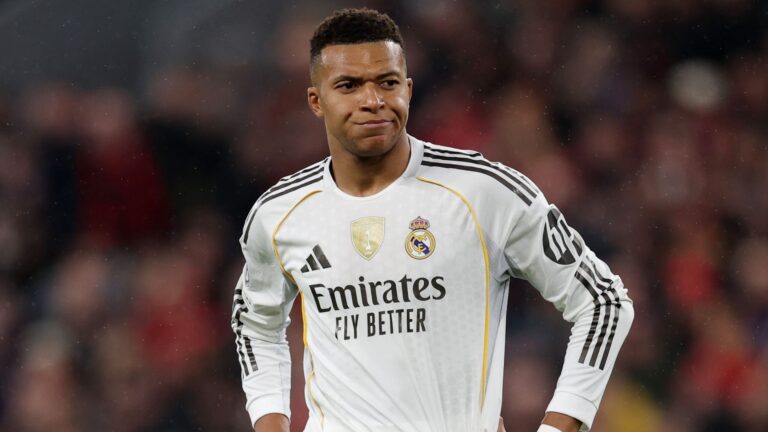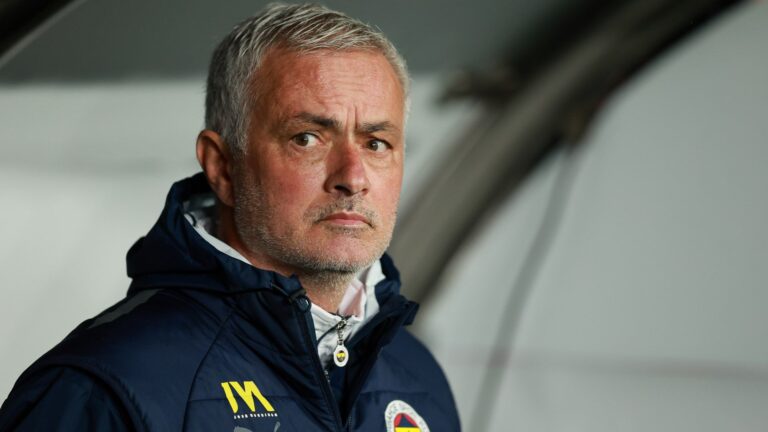Challenging the Stigma: Jude Bellingham’s Journey Through Mental Health Struggles in Professional Football
Jude Bellingham, the young sensation from Real Madrid, has candidly shared his personal battles with mental health and the pressures of elite sports, urging a shift in how athletes address emotional vulnerabilities.



Jude Bellingham’s Insights into Mental Health Pressures in Elite Sports
As a rising star in football, Jude Bellingham has opened up about the internal struggles that accompany a life in the spotlight, revealing how he navigates the intense demands of top-tier competition while keeping his mental equilibrium intact.
The Call for Openness Among Athletes
In his role as a Laureus ambassador, Bellingham advocates for greater transparency regarding psychological health, challenging the persistent taboo that discourages conversations about emotional issues in athletics. He points out that advancements in digital platforms have amplified opportunities for criticism, making it essential to dismantle outdated barriers around mental well-being.
“The rise of social media and tech has created endless avenues to target individuals and erode their self-esteem, yet the reluctance to discuss mental health persists,” Bellingham shared, as noted in Marca. “I’ve experienced phases of uncertainty and isolation, craving support, but I opted to project an unyielding sports persona, pretending I could handle everything alone. In reality, we’re all in need, and opening up can lead to tremendous relief.”
He further explains that sports figures often appear invincible, with the ability to achieve anything and accumulate wealth without repercussions. However, embracing one’s weaknesses can spark wider conversations for those facing unseen battles. “It’s our responsibility as prominent figures to lead by example and foster these important discussions,” he emphasized.
Addressing Criticism and Public Scrutiny
Bellingham views the adoration athletes receive as remarkable, yet it’s balanced by intense dislike from critics based on team affiliations or personal actions. This negativity can weigh heavily on one’s psyche, and he expresses deep understanding for those dealing with related challenges.
“The old notion that athletes should endure silently is no longer relevant,” he stated. “While opinions on sports are valid, there must be boundaries to prevent harmful rhetoric. Building a strong support system for players is crucial, though regulating online spaces remains a complex issue.”
Shifting Perspectives on Social Media’s Role for Athletes
The former Borussia Dortmund talent described how he altered his habits regarding online feedback after recognizing its impact on his early career confidence. Constant exposure to external views began to undermine his sense of value, prompting a reevaluation.
Early Experiences and a Change in Approach
“Back when I was starting out in Birmingham, I’d search my name on Twitter and absorb all the feedback,” he recalled. “Even positive remarks made me question why I’d allow strangers to define my own beliefs. I knew my abilities before those comments existed, so why let them influence me? Negative ones only worsened things, making me wonder why I’d invite that harm.”
The Dual Nature of Digital Platforms
For contemporary players, social media serves as both an asset and a liability, enabling direct fan engagement and authentic sharing, while also inviting relentless judgment. “Platforms like these offer real value, as more fans engage directly rather than through traditional media,” Bellingham noted. “Being genuine helps build connections and humanizes us. Still, the downsides, which I encountered young, led me to step back, a choice many peers have made too. Professional sports already bring enough stress without actively seeking more.”
Jude Bellingham’s Recovery and Future Focus
At 22, Bellingham has bounced back from shoulder surgery earlier this year, featuring in five matches for Real Madrid, though he was omitted from England’s recent lineup for games against Wales and Latvia.
Regaining Form and Building Resilience
Looking ahead, Bellingham is concentrating on fully recovering post-international duties, with Real Madrid preparing to take on Getafe in La Liga. He’s eager to regain his peak performance as the team strives to maintain their league standing.
“Confidence is key; it makes you feel unstoppable, but without it, everything feels off-kilter, as if your body isn’t responding,” he reflected. “Rebuilding it often stems from on-field success, creating a bit of a catch-22. I work to sustain it through positive self-talk and accepting that imperfection is normal-missing passes or not winning every time is part of the game, and getting comfortable with that brings true ease.”
Who is Jude Bellingham and Why His Voice Matters
Jude Bellingham, the young English football sensation playing for Real Madrid, has become a powerful advocate for mental health in sports. As a rising star who has represented England on the international stage, Bellingham’s openness about challenging the traditional “macho athlete” image is helping to reshape how we view vulnerability in professional sports. His discussions on self-doubt, mental health stigma, and the pressures of social media offer a refreshing perspective, making him a role model for athletes and fans alike.
Bellingham’s journey from Birmingham to the bright lights of the Bernabéu has been nothing short of extraordinary, but he hasn’t shied away from talking about the mental toll it takes. By sharing his experiences, he’s emphasizing that even top-tier athletes like himself face internal struggles, which is crucial for breaking down barriers in mental health conversations.
Breaking Down the ‘Macho Athlete’ Stereotype
The “macho athlete” image has long dominated sports culture, portraying players as invincible and emotionless warriors. Jude Bellingham is actively working to dismantle this stereotype by showing that strength comes from acknowledging weaknesses. In recent interviews, he’s highlighted how this outdated ideal can lead to suppressed emotions and poor mental health outcomes for athletes.
For instance, Bellingham has spoken about how the expectation to always appear tough pushed him to hide his own vulnerabilities early in his career. This insight is particularly valuable for young athletes who might feel pressured to conform, reminding us that true resilience involves emotional openness. Keywords like “Jude Bellingham mental health” and “challenging macho athlete image” are central to his narrative, as they reflect the evolving discourse in sports psychology.
Dealing with Self-Doubt as a Top Athlete
Self-doubt is a common thread in Jude Bellingham’s story, even as a Real Madrid and England star. He has openly discussed how the high-stakes world of professional football amplifies these feelings, from missing key goals to facing intense scrutiny from fans and media. Bellingham’s willingness to address self-doubt head-on serves as a reminder that it’s a normal part of high-performance environments.
In one notable discussion, he shared how self-doubt impacted his performance during England’s Euro campaigns, emphasizing techniques like journaling and talking to mentors to manage it. This approach not only helps individual athletes but also promotes “mental health in sports” as a key topic for ongoing education and support.
- Common triggers of self-doubt in athletes: Pressure from social media comparisons, performance expectations, and public criticism.
- Strategies Bellingham uses: Regular mental health check-ins and building a support network, which can reduce the impact of self-doubt on daily training and matches.
Combating Mental Health Stigma in Sports
Mental health stigma remains a significant barrier in athletics, where admitting to struggles can be seen as a sign of weakness. Jude Bellingham is at the forefront of changing this, using his platform to normalize conversations about mental well-being. As an England star, his advocacy highlights how stigma affects not just players but entire teams and organizations.
Bellingham has pointed out that the sports industry is slowly progressing, with more clubs like Real Madrid implementing mental health programs. His experiences underscore the need for systemic changes, such as mandatory counseling sessions, to create a more supportive environment for athletes dealing with anxiety or depression.
The Role of Social Media in Athletes’ Lives
Social media’s impact on mental health is a major focus in Jude Bellingham’s discussions, as he navigates life as a public figure. With millions of followers on platforms like Instagram and Twitter, Bellingham has talked about how constant online feedback can exacerbate self-doubt and reinforce the “macho athlete” image. He describes social media as a double-edged sword: it’s great for connecting with fans but can lead to overwhelming negativity.
Bellingham shares practical advice on handling this, such as setting boundaries with digital content and focusing on positive interactions. This is especially relevant for young athletes influenced by social media trends related to “Jude Bellingham and social media pressure,” helping them understand the real effects on mental health.
Benefits of Open Discussions on Mental Health
Openly discussing mental health, as Bellingham does, brings several benefits to the sports community. It fosters a culture of empathy, reduces isolation for athletes experiencing similar issues, and encourages early intervention. For everyday people, hearing from a figure like Bellingham can inspire them to prioritize their own mental well-being, showing that vulnerability is a strength.
Additionally, these conversations can lead to better team dynamics and performance, as players feel more supported. Benefits include improved focus during games and long-term career sustainability for athletes.
Practical Tips for Managing Mental Health
Drawing from Bellingham’s experiences, here are some practical tips that athletes and fans can apply to manage mental health effectively:
- Incorporate mindfulness practices: Start with short daily meditations to combat self-doubt, just as Bellingham does before matches.
- Build a support system: Connect with trusted friends, family, or professionals to address mental health stigma head-on.
- Limit social media exposure: Set specific times for checking platforms to minimize its impact, a strategy Bellingham advocates for maintaining balance.
- Seek professional help: Don’t hesitate to consult sports psychologists, as this can be a game-changer for dealing with the pressures of being a high-profile athlete.
Case Studies and First-Hand Experiences
Looking at case studies from other athletes provides context to Bellingham’s story. For example, similar to Bellingham’s experiences, players like Marcus Rashford have shared their battles with mental health stigma, leading to broader initiatives in English football. Bellingham’s first-hand accounts, such as his reflections on social media backlash after a tough game, illustrate how these issues play out in real time.
In his own words, Bellingham has described moments of doubt during his transition to Real Madrid, turning them into opportunities for growth. These stories not only validate the challenges but also offer hope, showing that with the right mindset, athletes can overcome them and thrive.









